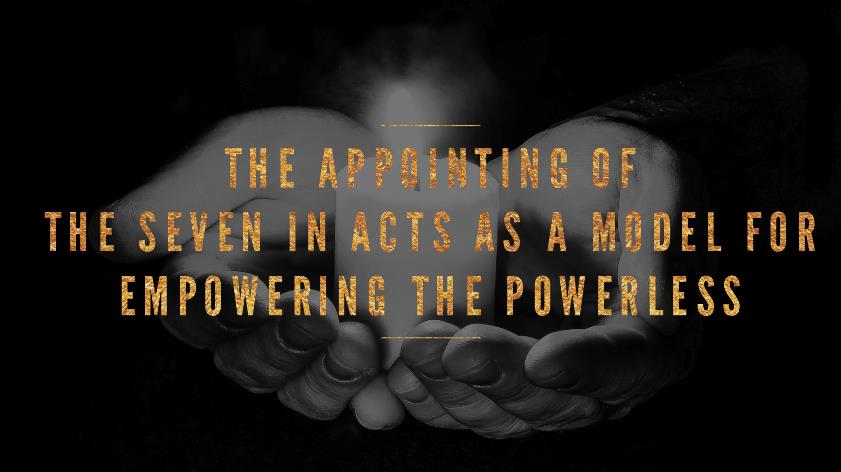The Appointing of the Seven In Acts as a Model for Empowering the Powerless
We find ourselves in Jerusalem, and the fledgling church is growing and has set about providing food for the widows in Jerusalem.
To be a widow at this time would have been a difficult life. Typically being a widow meant that you were too old to re-marry, and couldn't work.
Caring for widows and orphans was a major part of Jewish culture and history (Deuteronomy 14:29, Psalm 68:5, Isaiah 10:2, Malachi 3:5 etc.), and was also a particular concern for Luke - the author of Luke & Acts (Luke 2:36-38, Luke 18:1-8, Luke 20:47, Luke 21:1-3, Acts 9:36-43).
The section also distinguishes between two types of people there at the time:
- Hebraic Jews
- Hellenistic Jews
Hebraic Jews were the natives in that place. They represent the dominant people group in that area.
Hellenistic Jews were Jews who had moved to Jerusalem from outside of Palestine (diaspora Jews), therefore their culture and language were much more influenced by Greek culture.
At this time it was very popular for a man to move to Jerusalem towards the end of his life so that he could be buried in Jerusalem. This was considered virtuous and was also seen by some as the location of the resurrection of the dead.
This process meant that there would have been a disproportionate amount of Hellenistic widows in Jerusalem at the time; women who had moved back to Jerusalem with their husbands, who's husbands had subsequently died.
The Hellenistic Jews were very much the 2nd class citizen in Jerusalem.
In this narrative we see the Hellenistic Jews begin to complain to the apostles that their widows were being neglected in the daily distribution of food. They were being treated unfairly.
To address this issue the apostles then ask the believers to choose 7 men to organise the daily distribution of the food and to ensure that it is fair.
Let us have a look at what the text says:
This proposal pleased the whole group. They chose Stephen, a man full of faith and of the Holy Spirit; also Philip, Procorus, Nicanor, Timon, Parmenas, and Nicolas from Antioch, a convert to Judaism.
What is interesting here is that all 7 names are Hellenistic (Greek) names! and one of the number is not even ethnically Jewish, he is a convert to Judaism. This means that all 7 people chosen were from the minority (Hellenistic) side.
To summarise, in this section we see the means of power taken from the primary power-base, and instead being handed over to the minority in that community!
It is also worth noting that this is not the only criteria used. The 7 chosen must be:
- full of the holy spirit and
- full of wisdom
In a time when there is so much division and so much tension between power-bases and the subjugation of minorities, we, as the church, need to ask where we can empower the powerless, just as the early church did.
Please note that I got this material from Craig Keener's excellent free lecture series on the book of Acts.
Check out the course, or any of his books on acts or the rest of the bible here (the book link is an affiliate link, this means that if you purchase anything from the link I get a small percentage of the price).






Comments
Post a Comment